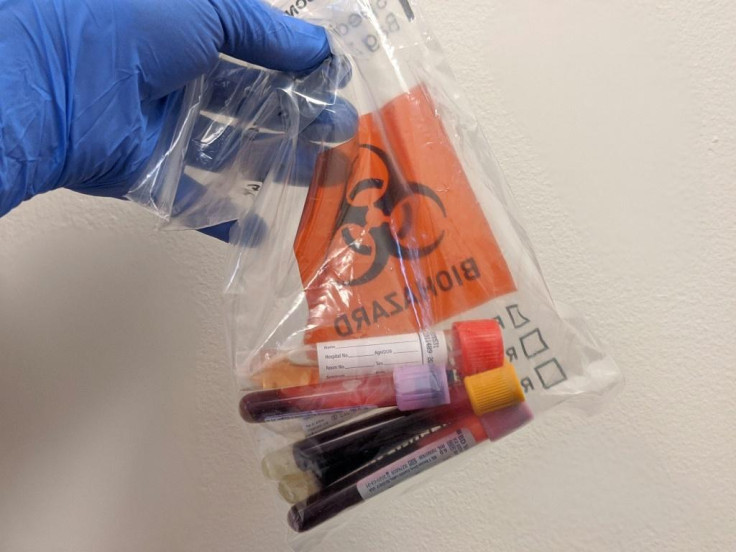UK plasma can be used for albumin manufacturing for life-saving treatments
The independent Commission on Human Medicines (CHM) revealed that the ban on deriving albumin from plasma donors is being lifted.

The United Kingdom government is allowing the manufacturing of human albumin from blood plasma doors in the country for the first time. Earlier it was banned because of the neurodegenerative disease scare.
This was confirmed by leading scientists from the independent Commission on Human Medicines (CHM) as they announced the ban on deriving this protein from plasma donors because of the potential threat of Creutzfeldt Jakob Disease (vCJD) spread has been lifted. The disease is known to cause dementia and other neurodegenerative problems.
How crucial is albumin?
Albumin is a protein found in blood which is critical in treating lifesaving conditions like kidney failure and increasing blood volume. It's essential during times of blood loss in injuries or surgery.
Blood plasma contains 3.5 to 5 g/dL of albumin which is half of the total protein content of blood. Hence it's a good source of manufacturing albumin. Liver cells create albumin and excrete 10-15 GM of albumin into the bloodstream every day. As such they are quite abundant in blood and can be easily derived from plasma
donors' blood.
Human albumin or HA are derived from the plasma proteins taken from human blood, that is, the donors. That HA is then used to supply the necessary blood protein required during severe injuries, burns, accidents and surgeries. Conditions like liver diseases, sepsis and renal failure often need this protein.
So far the NHS has been using HA derived from imported plasma-derived products which are manufactured in the US.
The Director of Plasma for Medicines at NHS Blood and Transplant, Gerry Gogarty, said that this will make the UK self-sufficient as it would reduce reliance on imported plasma.
NHS England Chief Pharmaceutical Officer for England, David Webb, reiterated how this is to save the lives of critically ill patients and how it will strengthen the medicine supply chain in the UK
Why is the ban lifted?
The MHRA has revealed that the ban has been lifted after a careful review of evidence. The CHM has even suggested that the current ban on treating patients using UK-manufactured albumin should also be lifted.
Previously, they lifted a similar ban on manufacturing immunoglobulins from plasma taken from UK plasma donors. Immunoglobulins or antibodies are critical medicinal products required to build immunity in patients, especially in infectious diseases and cancer immunotherapy, etc.
The effectiveness of albumin treatment has been established in many case studies like 54-year-old Lorna Stephenson from Birmingham whose rare muscle weakness and comatose condition improved with albumin exchange every 12 weeks. Her blood plasma had to be removed and replenished by donor plasma as her own antibodies attacked her body.
How safe will it be?
The albumin derived from UK plasma donors will follow the same safety protocols of blood collection. This means that all organisations authorised to manufacture this protein and collect blood for it have to follow the leucodepletion procedure which separates white blood cells from the blood.
This is done to prevent adverse reactions from the donor's blood which would be regarded as foreign cells by the patient's body if white blood cells are present. The blood collectors should also keep in mind high-risk donor deferral and they should trace donations from the donor to the receiver.
Even after this precautionary measure albumin derived from UK plasma has to undergo expert review just like any other medicine. So, experts from the MHRA and CHM would review the human albumin derived from UK plasma donors in order to approve them for commercial use in the UK. All medical products derived from UK plasma have to be evaluated by the same yardsticks as non-UK plasma products are evaluated.
The UK Health Minister Neil O'Brien underlined the importance of albumin saying it's vital for the NHS as they regularly use it for sepsis and liver disease treatments along with people suffering from blood loss.
The health minister appealed to the public to come forward to donate blood plasma as it would enable treatment for cancers and other immuno-compromised diseases.
How will it be done?
The human albumin will be manufactured from the plasma-derived by the NHS Blood and Transplant unit. There are two ways to collect this plasma - either directly from the NHS plasma donor centres at Twickenham, Reading and Birmingham; or by extracting plasma from normal blood donations received regularly.
Speaking about this, MHRA Chief Safety Officer, Dr Alison Cave said that they are committed to patient safety and the lifting of this ban is a testimonial to its safety.
© Copyright IBTimes 2025. All rights reserved.






















